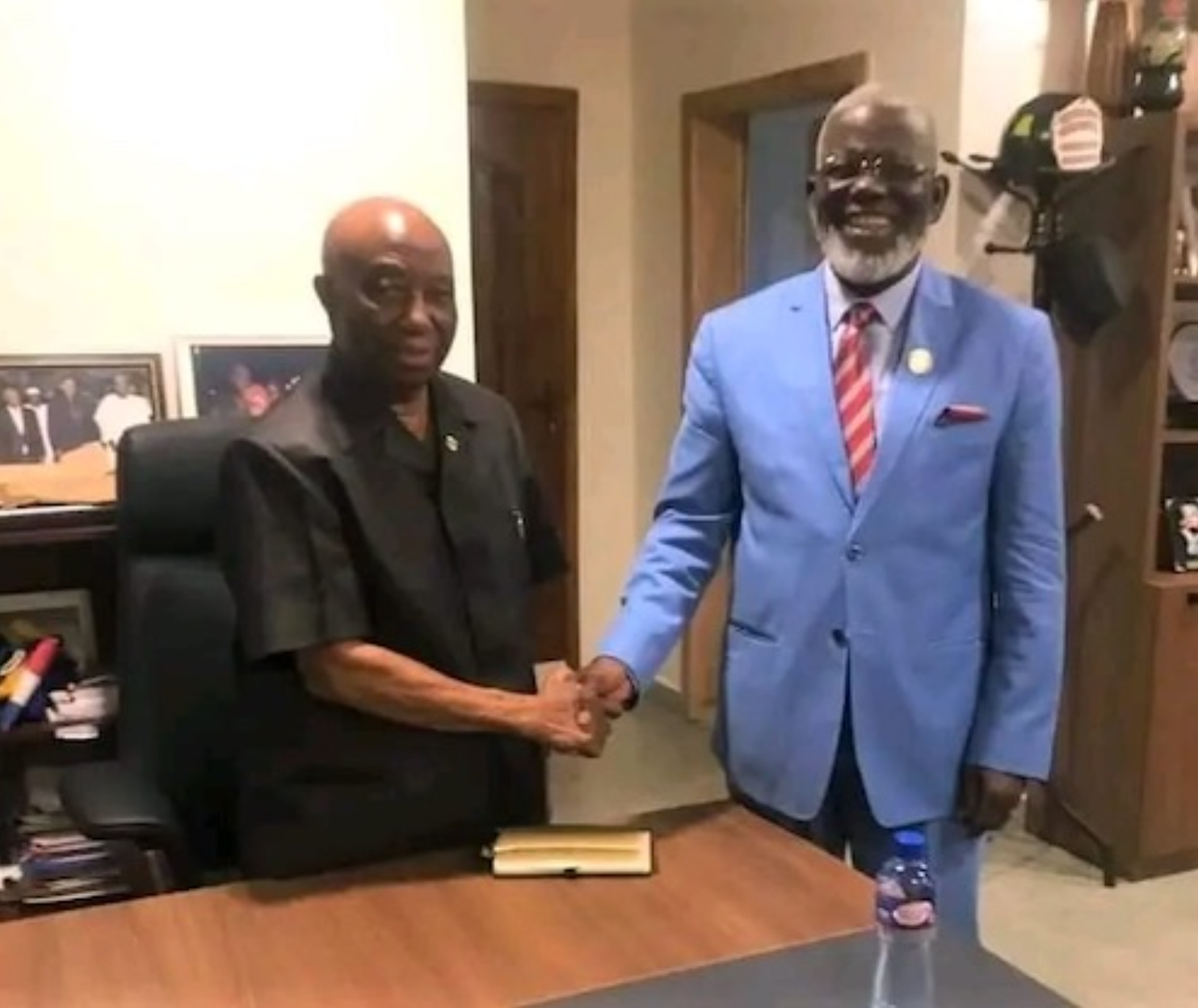Throughout his campaign, the old and frail former Vice President Joe Boakai has tried to construct a very specific brand of “incorruptible integrity.” His propaganda machine loves to tell stories behind closed doors about him refusing to grant immunity to Ellen Johnson Sirleaf and her family – and that that act of ethics cost him so dearly.
He’s also enjoyed taking lots of shots at President George Weah over the sanctions applied against some cabinet members (who were then duly removed) – as though that would never be the case with a Boakai presidency.
At this point, however, this is all becoming a big joke. Ethics? Integrity? Accountability? Let’s get serious and understand who we are talking about.
Are we really surprised that Joseph Boakai, who has a dependent financial relationship with sanctioned arms dealer Benoni Urey, is now exploring a partnership with former rebel leader, Prince Young Johnson, who by his own admission was involved in some of the most monstrous crimes against humanity in Liberia?
A Unity Party press release stated the two men discussed the “current poor state of national governance by the ruling Coalition for Democratic Change-led government and the future of Liberia,” though the details of that discussion will be shared at a later date, according to party insiders. Unfortunately, this pattern of behavior by Boakai highlights real character defects as the country heads into a presidential election; firstly, that Boakai would feel empowered to so regularly align with those accused of war crimes, and secondly, that conversations surrounding the government are being withheld from voters, in what many are saying is a secret plot to dupe voters.
Simply, it speaks volumes about the kind of candidate Boakai is and the kind of president he would be. Yet, this pattern of behavior dates back forty years .
During his time as vice president, Boakai was part of a flagrantly corrupt administration which granted more than a third of Liberia’s land to private investors for logging, mining and agro-industrial enterprises; he was part of a government that ignored the civil wars and made no attempt to acknowledge that the country and its people needed healing and reconciliation; he failed to pay attention to the pillars of the Liberian economy which include small businesses (e.g. market women and men, tailors, weavers, farmers, etc.); and he did nothing to modify the Liberian taxation and revenue systems that were misguided, serving only the needs of the elites.
Not to mention Boakai accepted a petition in Lofa county to contest the presidency of Liberia when he was running for the seat, thereby challenging a legitimate election and peaceful transfer; it’s not so surprising then, that he has now hitched his wagon to embattled Charles Taylor ally, Urey.
Unfortunately, this is who Boakai has always been.
Even his record leading up to his vice presidency falls flat. From 1983 to 1985, he served as Minister of Agriculture under President Samuel Doe whose rule was marked by totalitarianism and corruption, and eventually his assasination. Boakai also spent some time working in the private sector for the Liberia Wood Management Corporation and of the Liberia Petroleum Refining Company (LPRC). During his time as chairman of the LPRC, it was reported that, “one of the six layers of management was composed entirely of political appointees,” and that “the company…provided a textbook example of how to steal.”
It’s a wonder then that Boakai is resorting to old patterns. It seems he simply doesn’t know what it means to be a transparent public figure.
And Liberians are catching on.
If Boakai has any hope of salvaging his presidential campaign, he’ll need to make major reconstruction efforts to fix his shadowy behavior. In fact, if he has any hope of being taken seriously as a candidate at all, Liberians will expect him to focus less on attacking Weah, and instead on his own abysmal record and weak policy initiatives.
But, before all of that, he’ll need to make a show of good faith. One that shows he’s committed to rooting out the corruption that exists within his own team and within himself. That will mean making tough decisions which include severing ties with corrupt individuals like Urey. And if Boakai chooses to remain loyal to men who were part of overthrowing peace in Liberia, over our people? We simply cannot trust him.
Fortunately, Liberians are not easily fooled by men looking to acquire power at enormous cost to our people; rather, we are looking through political dealings and records with a fine tooth comb.
And we will ensure all agreements made behind closed doors see the light of day.
It is time for leaders that are more focused on building substantial and actionable policies that are truly rooted in lifting up our communities, instead of men who have built a legacy of lies.






